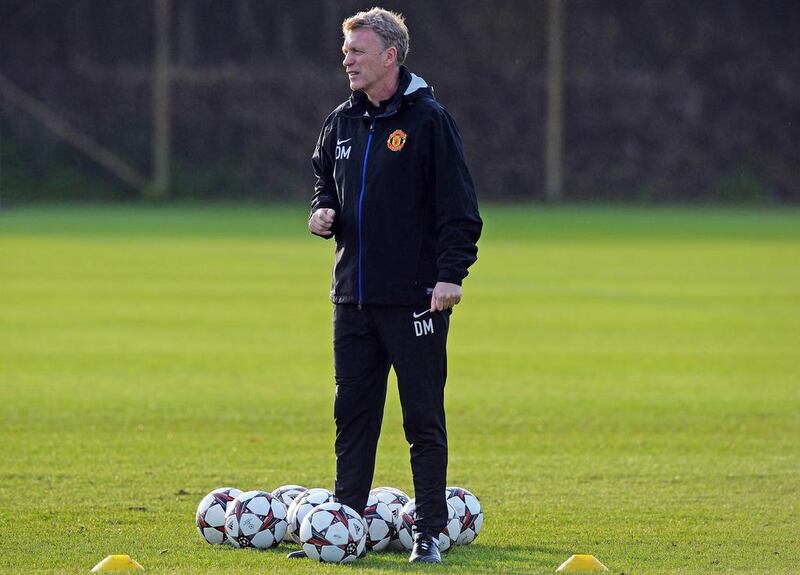Replacing the irreplaceable was, as David Moyes always knew, impossible. From the day of his appointment at Old Trafford, he has accepted that he would not enjoy the same success as Sir Alex Ferguson. Who could?
What was not anticipated was for Moyes to emulate certain other Manchester United managers.
In September, he became the first since Dave Sexton in 1978 to lose a home game to West Bromwich Albion. On Saturday, his side were defeated at Old Trafford by Newcastle United, a fate last suffered by Frank O’Farrell in 1972.
The ill-fated O’Farrell could not match the standards Sir Matt Busby set. He took United to eighth place in his only full season in charge. He was eventually dismissed.
Some may sense parallels with Moyes, whose side are in ninth place. It is not hard to find United fans in cyberspace who, ignoring his record of finishing seasons strongly at Everton, believe his six-year contract should be ripped up and his reign should be written off as a failure.
They are bemused and confused. Many have never experienced underachievement before: Ferguson was a one-man guarantee against mid-table mediocrity.
He retired convinced he had left an enviable legacy, adamant that his young players would improve and arguing that his 13th and final title-winning team bore comparison with any of their predecessors.
Many, both among the Old Trafford regulars and neutrals, were less convinced.
It was hard to criticise a team who took 89 points in successive seasons, but weaknesses were apparent. Now they are glaringly obvious.
Compounded by the absence of Michael Carrick, the one blue-chip performer, there is a gaping hole where a midfield ought to be and a surfeit of squad players but too few automatic choices.
Too many of the pivotal players are in their thirties, not enough at their peak.
Yet if some of their problems were predictable, the speed with which they have shed their winning mentality is shocking. Apart from Marouane Fellaini, the current collective all played under Ferguson – for many seasons, in most cases – and yet they have swiftly mutated into the antithesis of a Ferguson team.
His side overachieved; they are underachieving. His charges scored late goals; Moyes’s men did so against Stoke City but have conceded them in costly fashion to Southampton, Cardiff and Everton.
The comeback was Ferguson’s signature, the single greatest indicator of his refusal to accept defeat. But Newcastle, like Everton three days earlier, defended their lead comparatively comfortably.
Opponents are no longer intimidated into submission. Because Ferguson’s former players and his managerial acolytes had notoriously poor records against him, teams arrived at Old Trafford content to lose respectably, United were not accustomed to encountering such resistance.
Now others, aping Ferguson’s attitude, have become experts at sniffing blood at Old Trafford.
The fear factor is gone, along with the aura of invincibility and the title.
The bare facts are that United only dropped 25 points in each of the last two seasons.
They have taken fewer (22) in the current campaign than they have lost (23) and, on points, are closer to Hull City and Norwich City than the top five.
It is easy to blame Moyes and it is undeniable that, from team selection to transfer-market failures, he has underperformed.
A manager whose teams were configured not to lose has struggled to find the appropriate balance between defence and attack.
It seemed an act of desperation when he sent Ferguson’s final signing, the £15 million (Dh90.3m) forgotten man Wilfried Zaha, on for a belated league debut on against Newcastle.
If desperate times called for desperate measures, Zaha’s display was suitably desperate. His was a hapless cameo.
Yet in a season when only Wayne Rooney, Adnan Januzaj and, perhaps, David de Gea have enhanced their reputations, the reality is that a floundering manager is far from the only culprit.
A clear-out is as necessary as an injection of world-class players, but rebuilding United could cost £100m and would require more nous than Moyes and executive vice-chairman Ed Woodward showed in their ham-fisted attempts to recruit last summer.
Instead, Fellaini has become emblematic of a club that has lost its way. Though the signs of decline have been there for a while, it is staggering how quickly United have unravelled.
sports@thenational.ae






